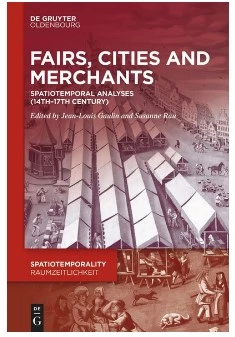Anyone attending the Leipzig Book Fair at the end of March was able to see that fairs are booming once again. Considering such face-to-face meetings took place in virtual spaces or were cancelled at short notice during the Covid-19 pandemic, this was by no means certain.
Today, the crucial role trade fairs played in early modern Europe's finance and trade has largely been forgotten. In the Middle Ages and early modern times, many cities tried to obtain trade fair privileges and to attract as many merchants as possible. Through economic activities and their infrastructure, a supra-national spatia configuration gradually emerged, consisting not only of places within a single region, but spread across Europe and, in some cases, even across the globe.
Historians from Germany, France, and Italy have been examining this history over the past four years, from a spatio-temporal perspective. Their archival studies and analyses form the foundation of this book. Supported by graphics, tables, and maps, this volume offers a new look at the history of fairs and trade fairs in Europe (as well as a prospect of what was then China). In addition to functional aspects of trade fair exchanges, spatio-temporal aspects such as disputes over trade fair dates, visitor rhythms, transport of goods, and routes (by land and water) are also dealt with. Credit transactions, transport of goods and mobility of traders, trading families and companies point to the already highly developed transnational dimension of pre-modern trade. The volume closes with an introduction to the project database, its functionalities and participation options.
Jean-Louis Gaulin and Susanne Rau. Fairs, Cities and Merchants: Spatiotemporal Analyses (14th–17th century), Berlin, Boston: De Gruyter Oldenbourg, 2025. https://doi.org/10.1515/9783111621296

